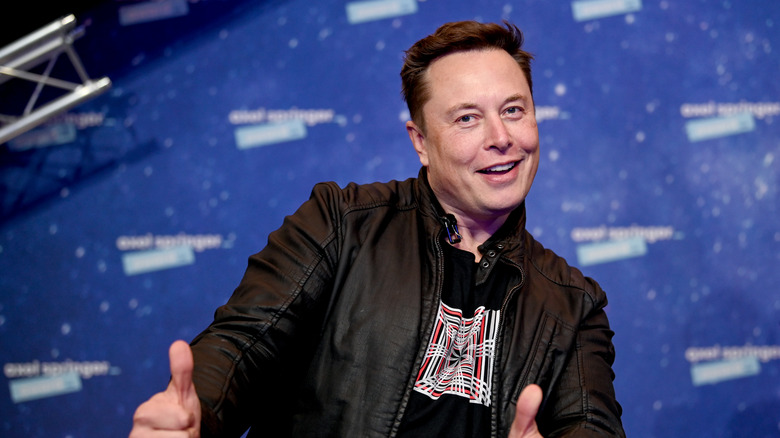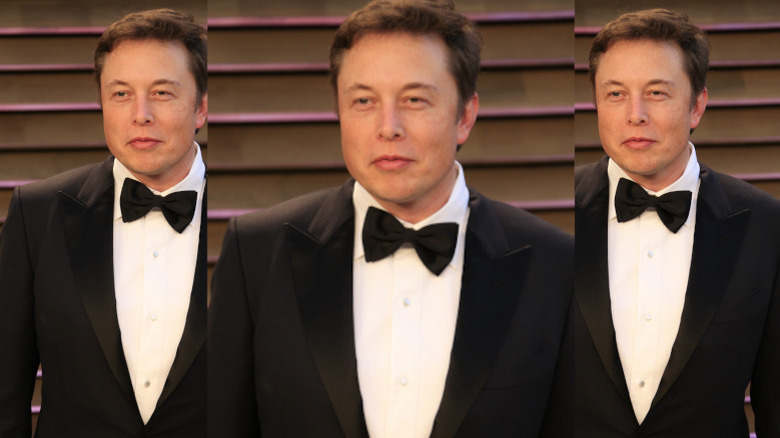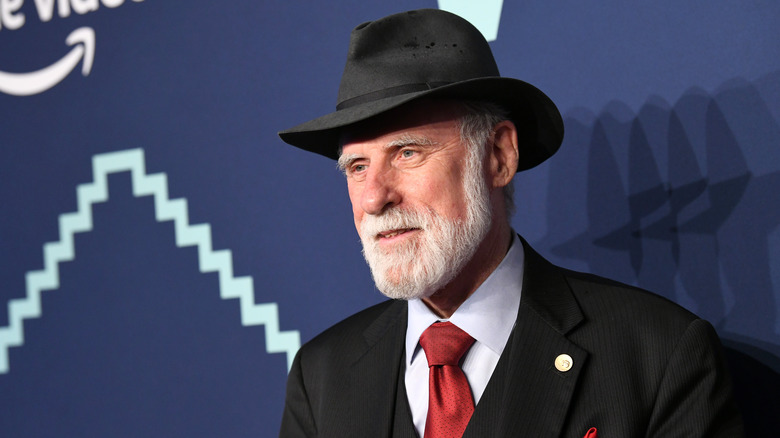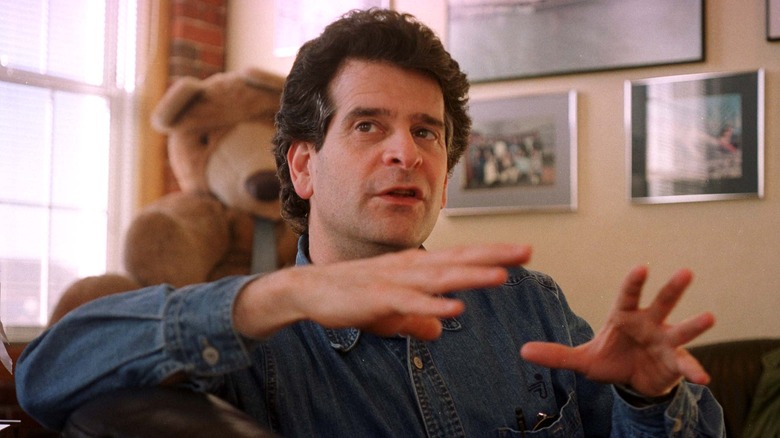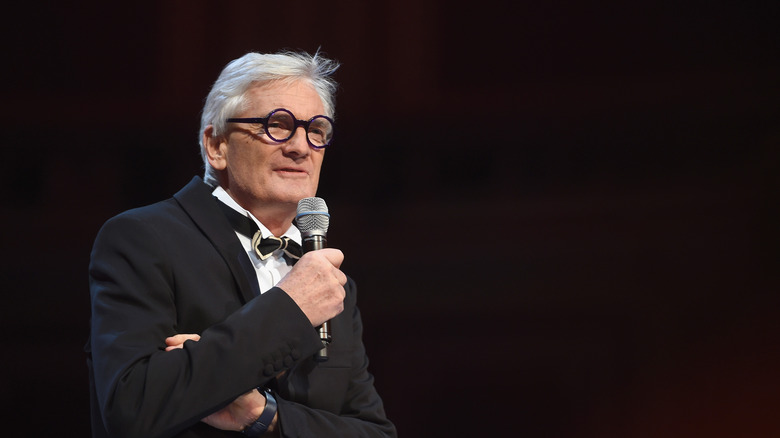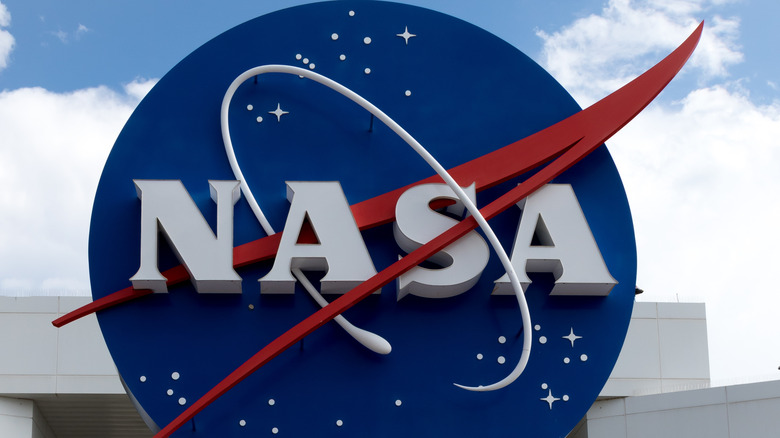The Greatest Inventors Alive Today
Inventors don't always receive the attention and rewards they deserve. The men and women who create new devices, technologies, and products have a powerful impact on our lives — almost always for the better. It's easy to see that impact when you think of famous inventors like Thomas Edison, Alexander Graham Bell, or Johannes Gutenberg. There's little doubt that our lives would be much different (and much worse) without the telephone, or recorded music, or mass-produced books.
It can sometimes seem like the glory days of invention are long behind us. In part, that's due to the increasing complexity and sophistication of technology, which makes inventions necessarily more subtle and less obvious. Inventing a new kind of widget for an existing machine doesn't have the same impact as inventing the original concept in the first place, after all. But that doesn't mean people haven't stopped inventing things — or that those inventions are any less incredible. Every day, brilliant people are going to work and cooking up the products and underlying technologies that will define the course of our collective futures.
That's why it's just as important to honor and celebrate living inventors as the legends from history. The scientists, engineers, and craftspeople creating tomorrow's technologies today shouldn't have to wait until they've passed into history to be celebrated — here are some of the greatest inventors alive today.
Elon Musk
As pointed out in Current Affairs Magazine, billionaire Elon Musk can often be controversial in public. His opinions and the frequently juvenile tone of his social media posts can sometimes make him seem less like a brilliant inventor than the wealthy scion of a wealthy family who likes to stir things up online.
But Musk has a long list of inventions and concepts that are very obviously changing how we live our lives. As noted by The Atlantic, his initial business success came with PayPal. The company, originally known as Confinity, pivoted to the online banking and payments model it's known for when it merged with Musk's X.com, which had the backbone technology required. When PayPal sold out to Ebay in 2002, it made its founders billionaires, and Musk put his talent and money into developing a wide range of new technologies.
We all know where that went: As noted by Rolling Stone, Musk has transformed the world of automobiles with the launch of Tesla, arguably the first electric car that matches conventional gas-powered autos in terms of performance. He's also transformed the world of space exploration and rocketry with SpaceX, which uses the incredibly innovative Falcon rocket system. As explained by Time, the Falcon's modular design and ability to return from orbit and land upright with incredible precision makes it one of the most important innovations in rocketry in decades.
Kia Silverbrook
You may not be familiar with the name Kia Silverbrook, but in terms of sheer volume, he's one of the greatest inventors of all time. According to Gildshire Magazines, he's filed more than 4,000 U.S. patents in his life so far, often trading the record for most patents with his peer Shunpei Yamazaki. Incredibly, as noted by Business Insider, Silverbrook's patents range widely among different industries and technologies, including digital music and mechanical engineering.
In fact, as noted by ILMM magazine, if you look outside the United States, Silverbrook has nearly 10,000 patents in his name — a truly incredible number of inventions. Many of his inventions affect your life on a regular basis — if your phone's camera identifies and focuses in on people's faces automatically, you can thank Silverbrook for the underlying technology that drives that.
Silverbrook's inventions have often had an enormous impact. In 2007, he helped invent a new printing technology called Memjet that was so revolutionary it was initially considered a hoax. So why is such a prolific inventor so obscure? The answer is simple: Most of Silverbrook's inventions are "under the hood" stuff that's difficult to separate from other technologies, and almost all of them are owned by corporations instead of Silverbrook himself.
Shunpei Yamazaki
While we tend to remember inventors for specific inventions, another metric often used to gauge their impact on their field and the wider world is the volume of patents they are awarded for unique and transformative ideas. For example, when he passed away in 1931, Thomas Edison held 1,093 U.S., patents — a world record. That record stood until 2003, when a Japanese inventor named Shunpei Yamazaki passed him, according to the Times Herald.
Yamazaki traded the world record of most patents with fellow inventor Kia Silverbrook, but regained the top spot in 2016 and is currently the world record holder according to Guinness World Records. But even if you don't think much of holding a lot of patents, Yamazaki's inventions have really changed how we live. As noted by Business Insider, one of his most notable inventions was the thin-film transistor, a key element used in LCD displays. According to Investopedia, Yamazaki's other inventions include a cold fusion system. The Economist reports that the value of Yamazaki's inventions is more than $5 billion, which puts him in a very exclusive club. However you look at his career, Yamazaki is one of the most prolific and creative inventors to ever live.
Vint Cerf and Bob Kahn
Wherever you are in the modern world, you are probably connected to and reliant on the Internet in some way. And while the Internet is an incredibly complex system of technologies working in concert, the backbone of it all remains the Transmission Control Protocol (TCP) and Internet Protocol (IP): the set of "rules" that govern how data is transmitted. And for that, you can thank Bob Kahn and Vint Cerf, because as noted by the National Inventors Hall of Fame, they collectively invented TCP and IP.
According to Northern Virginia Magazine, Kahn was working at Stanford University and Kahn was working for the Defense Department's Advanced Research Projects Agency (DARPA) in the early 1970s. When Cerf also joined DARPA in 1976, the two joined forces and began work on the revolutionary invention that would build on packet-switched networking technology already in existence to create an interconnected global system of data networks — the Internet.
Based on societal impact alone, Cerf and Kahn deserve to be numbered among the greatest inventors of all time. As noted by The Atlantic, without their invention we wouldn't have any of the nice things we have to day — like online shopping, Netflix, or the ability to order a pack of gum from Amazon and have it delivered within an hour.
Lowell Wood
According to Bloomberg, in 2015, Lowell Wood became the most prolific American inventor when he surpassed Thomas Edison's patent total. In terms of volume and impact, Wood is one of the most important inventors of the modern age. As noted by author Rodney Allen Brooks in his book "Flesh and Machines," if the name is familiar, it's probably because of his involvement with the Ballistic Missile Defense Organization — more popularly known as the Star Wars missile defense system promoted by President Ronald Reagan in the 1980s.
Wood has thousands of inventions to his name, including work on everything from anti-concussion helmet technology, nuclear reactors, and drug-delivery systems to microwaves that can cook several different kinds of food simultaneously. He works as an "inventor-in-residence" at a company called Intellectual Ventures, which means he is paid to just sit around and come up with ideas.
Surprisingly, Wood was a poor student at first — and only improved his grades by grinding away at repetitive work and memorization. He went on to earn a Ph.D. and has degrees in chemistry, math, and astrophysics. Even more incredible, Wood didn't become a full-time inventor until 2006 when he was 65 years old.
Dean Kamen
If you know the name Dean Kamen, it's probably because of the Segway. As reported by Slate, the Segway was launched in 2001 with an incredible amount of hype. The invention was going to change the world, remake cities, and transform our lives. The disappointment that ensued when it was revealed that the Segway was just a very well-engineered and super advanced personal transporter.
The backlash was enormous and has served to obscure Kamen's legendary status as an inventor. As noted by Forbes, his inventions have had a huge impact in the treatment of a range of diseases including cancer and diabetes. According to the Stevens Institute of Technology, Kamen holds more than 1,000 patents, and the Florida Inventors Hall of Fame notes that Kamen's inventions include an at-home dialysis machine, the advanced LUKE prosthetic arm, and a portable drug infusion pump called AutoSyringe™.
Kamen has, in other words, had a tremendous positive impact on healthcare — which affects all of us. But most of his achievements have been overshadowed by his singular failure, the Segway — though that failure has been overstated. While the Segway never took off, Fast Company reports it remained in production for nearly 20 years, and it did find a market in security and tourism. Most importantly, as noted by Wired the Segway was rather revolutionary, filled with cutting-edge engineering that opened the door to the electric scooters, bikes, and skateboards people are racing about on today.
Jack McCauley
If you've ever used a computer or played a modern video game, you've used something Jack McCauley has invented or helped invent or design. As noted by Authority Magazine, McCauley first made a splash as one of the creators of the universal serial bus for personal computers and devices — better known as the ubiquitous USB connectors we all use every day. And according to Berkeley Engineering, McCauley also invented the first scrolling feature for computer mice, something you're probably using right now.
But McCauley's biggest impact came when he began working in the video game industry, inventing new controls and ways of interacting with games. As CNBC reports, McCauley worked on the incredibly successful Guitar Hero franchise for Activision (he designed the drums and guitar controls), and contributed to the design and operation of the Xbox 360 controls for Microsoft.
McCauley then went on to become the lead designer for Oculus Rift, the virtual reality headset technology eventually bought by Facebook for $2 billion. He's also invented digital simulator technologies for movie sound systems. In short, if you've ever enjoyed yourself using modern technology, you have Jack McCauley to thank — and that's why he's currently Innovator-in-Residence at the Jacobs Institute for Design Innovation at the UC Berkeley College of Engineering.
Jennifer Doudna and Emmanuelle Charpentier
Winners of the 2020 Nobel Prize in Chemistry, Jennifer Doudna and Emmanuelle Charpentier may wind up being two of the most important names in human history. As noted by The Guardian, their dual discovery and invention, clustered regularly interspaced short palindromic repeats (CRISPR)-Cas9 — usually written simply as CRISPR — has made it possible to edit any DNA at any point very easily and straightforwardly. That will undoubtedly have profound implications for humanity going forward.
As reported by Nature, the invention of CRISPR tools has revolutionized, well, everything. Scientists can now alter genes at will, and can thus experiment with DNA edits to cure or prevent diseases, and change genetic traits. While the benefits of this power are obvious, so are the dangers. As reported by The New York Times, many people worry that gene editing may alter what it even means to be human — and these alterations may have completely unforeseen and not necessarily positive implications.
Doudna is locked in a battle for the patent rights to CRISPR (via The New York Times). Although she and Charpentier did the initial work, the first patents were awarded to Feng Zhang of the Broad Institute and the Massachusetts Institute of Technology (MIT). Building off Doudna's research, Zhang performed the first experiments demonstrating that CRISPR would work on human cells, technically beating Doudna to the punch on that front. Still, patent or no patent, Doudna and Charpentier are undoubtedly the inventors of one of the most important tools humanity has ever seen.
Scott Jones
If you measure the importance of an inventor by the impact of their inventions, Scott Jones wins: If you've ever received or left a message for someone on a phone — that is, if you've ever used voicemail — you have Jones to thank.
Scott Jones didn't invent the idea of voicemail. The concept and various systems to provide the service existed for decades according to Interesting Engineering, but they were impractical. They were large and expensive, and didn't offer enough capacity to make them very useful.
But as reported by Indianapolis Monthly, when Jones launched Boston Technology in 1986, he invented a way to scale voicemail in a way that allowed companies to store millions of messages, thus making it practical for the first time. The invention made Jones incredibly wealthy, but he didn't stop there. Indystar reports that Jones went on to invent the technology that allowed programs like iTunes to look up information about digital music being played, and he did groundbreaking work in robotics designing a self-driving vehicle decades before Tesla and marketing a robotic lawnmower that was precise enough to be used on professional golf courses.
Sadly, an expensive divorce and a series of business failures — including a search engine platform that used human guides to enhance results — have drained Jones' fortune, once estimated at $400 million, leaving him heavily in debt despite his inventions.
James Dyson
If you've vacuumed your home or used a public bathroom, there's a good chance you've encountered some of Sir James Dyson's inventions. According to the encyclopedia Britannica, Dyson's first major invention was the Sea Truck, a landing craft designed to be fast and stable. He then invented the ballbarrow, a wheelbarrow-like conveyance that used a sphere instead of a wheel for better stability.
But at the factory where ballbarrows were made, Dyson had a dust problem: The air filters were perpetually clogged. So he built a cyclone particle collector to clear the air. As noted by Interesting Engineering, when Dyson became similarly frustrated by clogged vacuum filters while cleaning his home, he was inspired to invent the first bagless vacuum cleaner using a similar principle. Inc. reports that Dyson went through more than 5,000 failed prototypes before he finally had a design that worked.
As noted by CBS News, Dyson has gone on to invent a slew of other devices, including a bladeless fan called an "air multiplier," the Airblade hand dryer, and a new kind of clothes washing machine that was incredibly efficient, but far too expensive to put into production. Those 5,000 failed prototypes paid off, though — according to Bloomberg, he's currently worth close to $18 billion.
Satoshi Nakamoto
As noted by the Robb Report, no one knows with any certainty who Satoshi Nakamoto is. He might be a man or a woman, or several people. All we know about Nakamoto is that he appeared in 2008, published a white paper about establishing a digital currency using a digital blockchain, invented Bitcoin, and then vanished in 2011.
As reported by Investopedia, speculation about Nakamoto's identity has raged ever since Bitcoin began to rise in value and adoption. The Bitcoins that Nakamoto reportedly controls are currently valued at $73 billion, making him the 15th richest person in the world. In fact, if Nakamoto ever identified himself or tried to sell his Bitcoins, it would most likely cause chaos in the market — when cryptocurrency exchange Coinbase filed for an initial public offering, they listed this possibility as a potential as a risk factor for investors.
There's little doubt that Bitcoin and the blockchain that runs it are incredible inventions that have changed the world. Cryptocurrencies have the potential to anonymize finances and alter the way money transactions work. Whether Bitcoin will ever become a widely used currency or a permanent part of the global economy remains to be seen — but the brilliance of its invention is already clear.
Jacquelin Quinn
For most people, just working for The National Aeronautics and Space Administration (NASA) would be a career highlight. If you're Jacqueline Quinn, that's just the starting point. As noted by The National Inventors Hall of Fame, Quinn works as an environmental engineer for NASA, and her inventions have been focused on cleaning up our polluted environment — in part because NASA has had a hand in polluting it.
NASA used to utilize chlorinated solvents to clean rocket engines, but these solvents are heavier than water and can easily sink into groundwater, making it toxic. As reported by NASA itself, Quinn's solution was to invent emulsified zero-valent iron (EZVI), which acts as a 'sponge' to soak up the contaminants in water, purifying it. EZVI has been licensed for commercial use, meaning that it's improving the health of our planet and increasing the amount of safe drinking water every single day.
And Quinn didn't stop there — as noted by The Florida Inventors Hall of Fame, she's also invented ways of removing cancer-causing elements from soil and materials, and she holds 12 U.S. patents. It's safe to say that Quinn is one of the most important thinkers in the field of environmental remediation, and someone who is tackling humanity's negative impact on our environment head on — with inventions.
